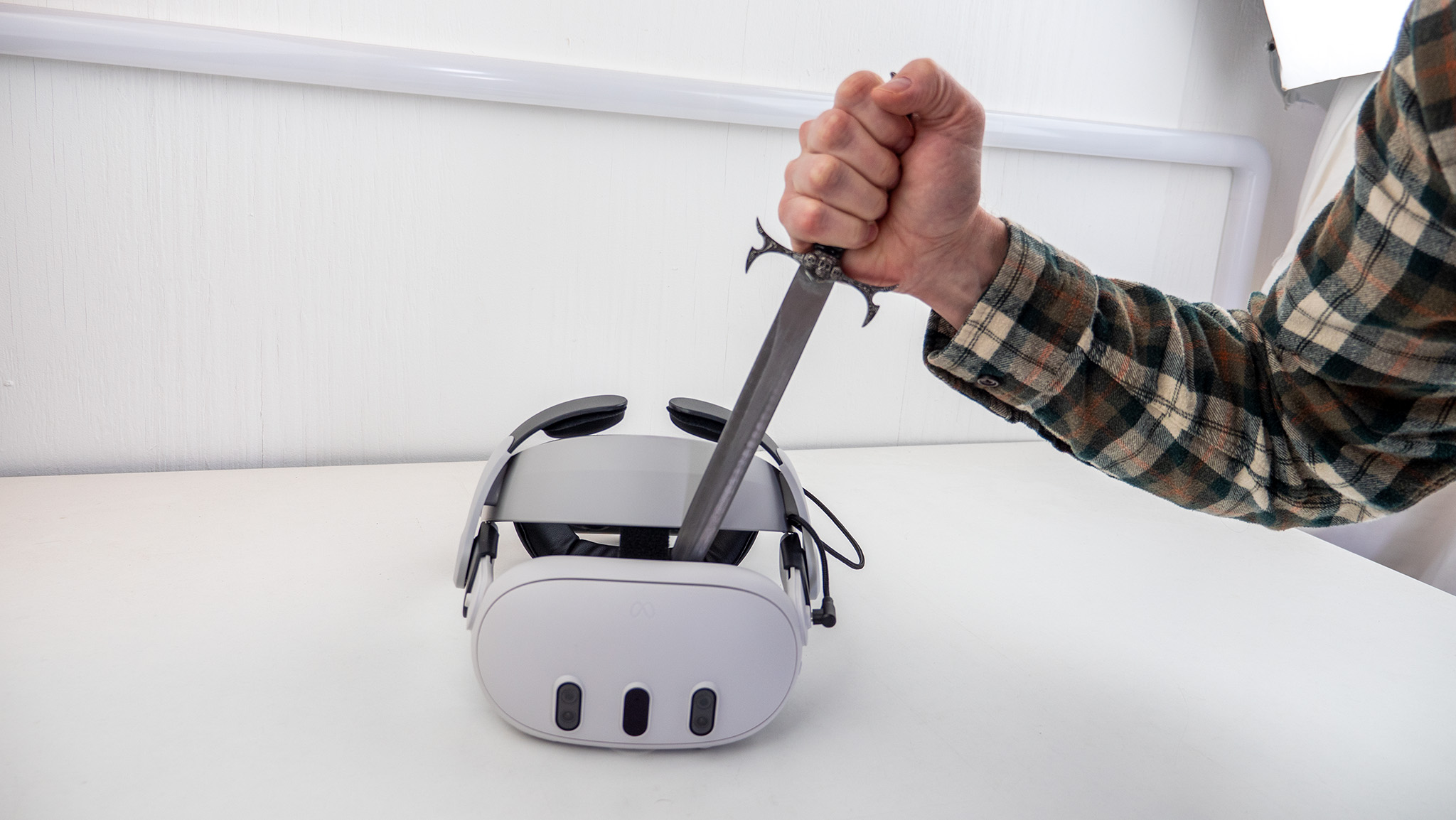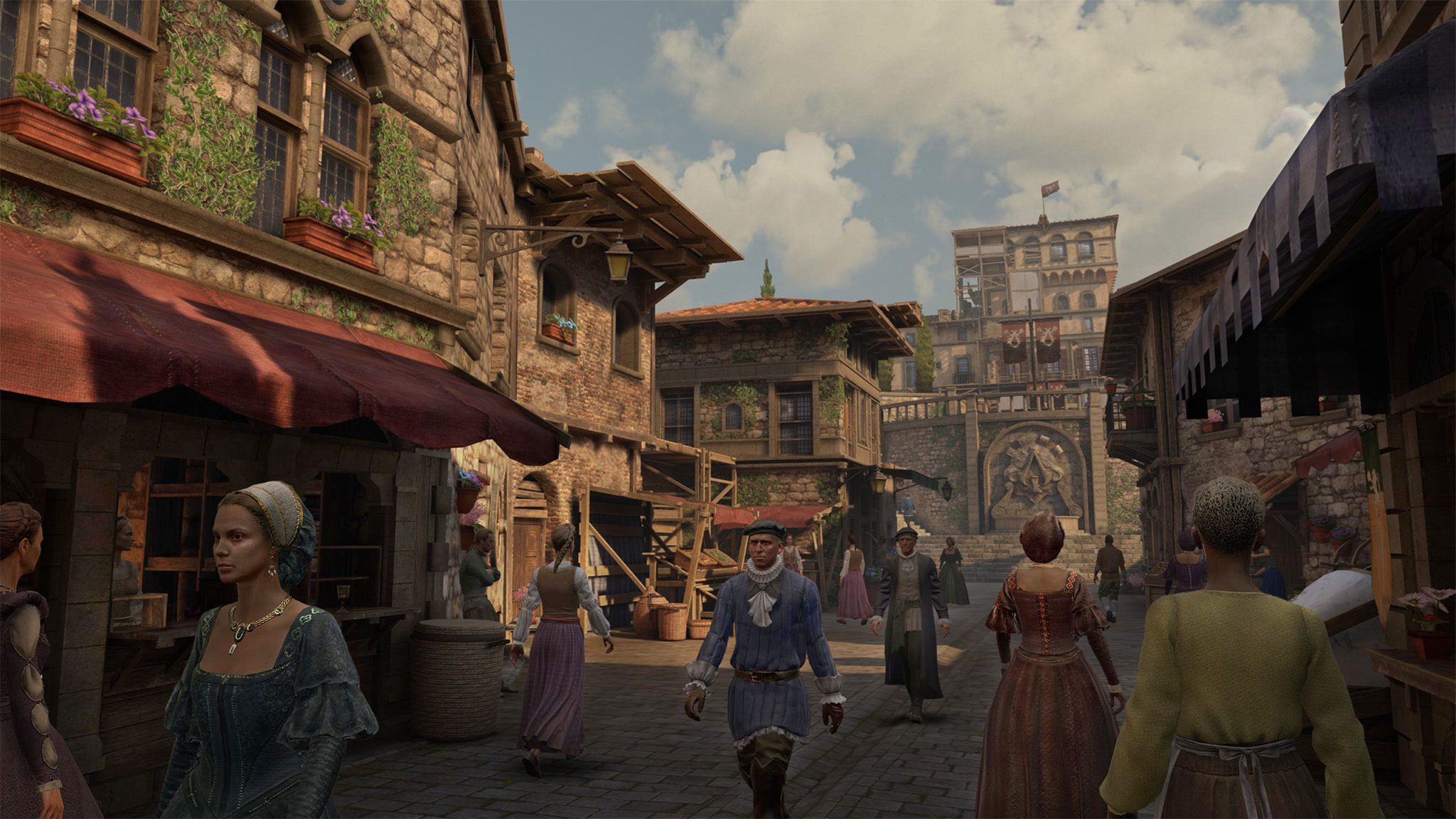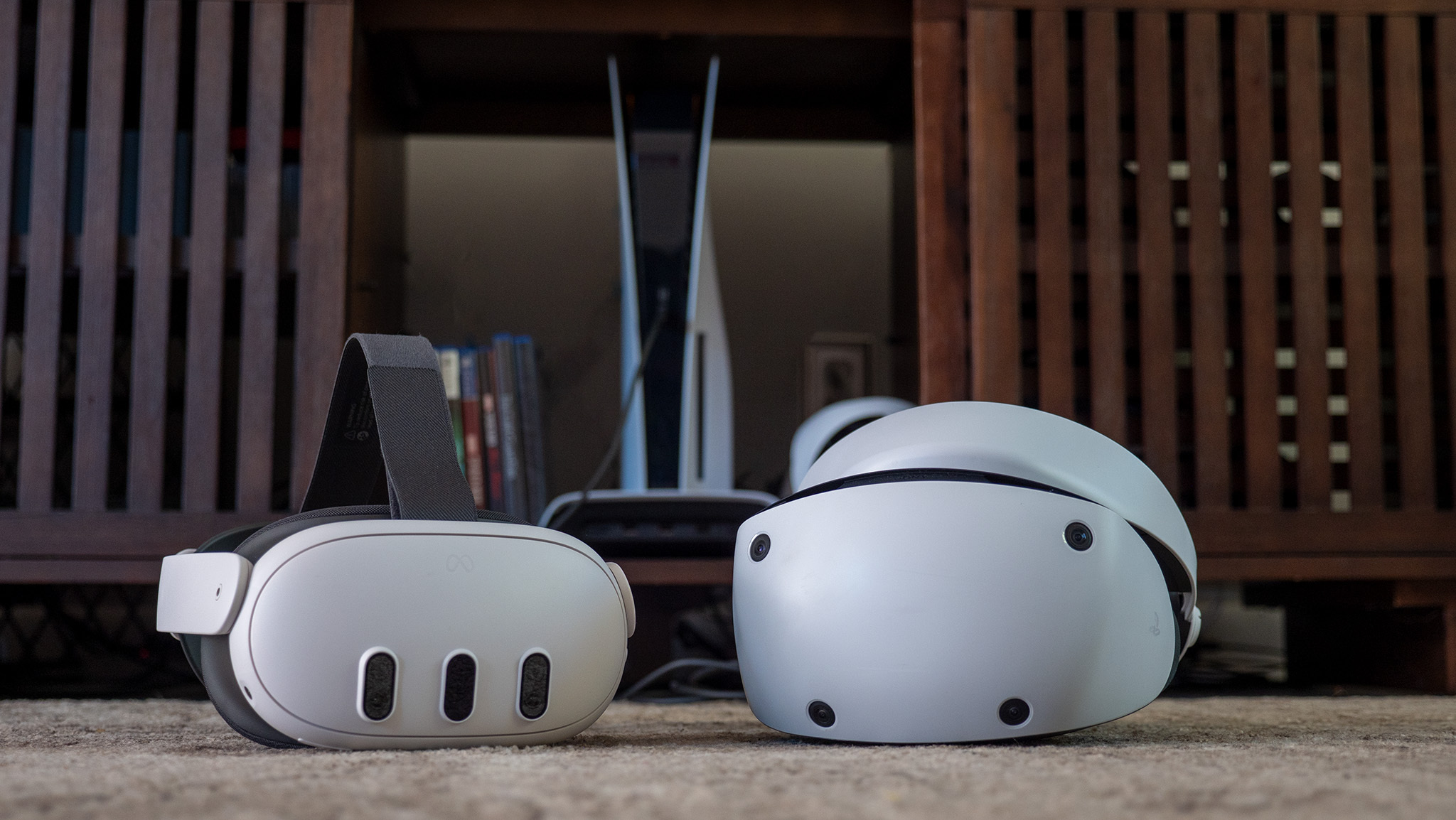Assassin's Creed VR isn't a failure, Ubisoft just needs a reality check
Assassin's Creed VR sales were tepid, but Ubisoft's goals are unrealistic.

This past week, quotes from Ubisoft CEO Yves Guillemot rocked the VR community. The CEO said that Assassin's Creed Nexus VR sales were "disappointing" and that his company would "not be increasing our investments in VR at the moment because it needs to take off."

In his weekly column, Android Central Senior Content Producer Nick Sutrich delves into all things VR, from new hardware to new games, upcoming technologies, and so much more.
This quote elicited plenty of reactions from the community, including the tired "VR is dead" group of folks who always seem to jump on potential negative VR news. But Ubisoft CEO's comments aren't a ringing gong for VR's demise, nor do they mean that VR development from Ubisoft is tapering off, as some have erroneously claimed.
We already know that Ubisoft is making Just Dance VR, and it's using an exclusive partner for the launch, which almost certainly means Meta. The assumed success of that title will, no doubt, get Ubisoft back to a happy place and, hopefully, encourage more developers to make sensibly budgeted projects, as well.
After all, Guillemot said the company "wasn't increasing investment in VR," not that the company is decreasing investment or ceasing investment entirely.
Unreasonable expectations

A successful gaming launch and a successful launch to shareholders are two different things.
Ubisoft and its shareholders expectations of sales and profit margins are fairly delusional. The CEO said, "It did okay, and it continues to sell, but we thought it would sell more." A statement that doesn't seem too unreasonable when rough estimates show the game sold between 220,000 and 250,000 copies. That's a drop in the bucket when you consider that the entire Assassin's Creed series has sold over 150 million copies.
Assassin's Creed Nexus VR made more than 96% of all games sold in a year on Steam, a platform that's much larger than the Meta Quest.
But number of copies sold is only part of the picture. Assassin's Creed Nexus VR costs $40 on Quest. Meta takes 30% of every purchase through the store, meaning Ubisoft takes home $28 in revenue on each copy sold. Rough back of the napkin math says that Ubisoft likely made between $6-7 million dollars on Assassin's Creed Nexus VR, which puts the game in an elite category of titles.
Get the latest news from Android Central, your trusted companion in the world of Android
If we look at relevant data from Steam, only 4% of games sold on Steam ever make more than $1 million. That means Assassin's Creed Nexus VR made more money than at least 96% of games sold on Steam, which is a far larger platform than the Meta Quest may ever be.
We don't know how much Ubisoft spent to make the game, and that may be the biggest part of the problem.
The missing link here is that we don't know how much Ubisoft actually spent making Assassin's Creed Nexus VR. Making $6 million or more on a game is the dream of a lifetime for an indie developer, but a company like Ubisoft is used to releasing a handful of titles each year that make tens of millions of dollars.
Even worse is that games like Skull & Bones can sometimes take a decade to make, leading executives to make ridiculous claims about them being "quadruple A" titles even though many early impressions have found the title to be underwhelming.
Companies like Sony are also citing disappointment despite record revenue in the console space.
This problem even goes as far as console manufacturers, too. Sony senior vice president Naomi Matsuoka said the sales of PlayStation 5 were underwhelming even though the company sold 21 million units in 2023.
That's two million more PS5s sold in 2023 versus 2022. The PS5 even outsold the Xbox Series S|X by a three-to-one ratio. Q3 2023 was the highest revenue that PlayStation as a brand has driven in history, but you'd never know it. This is a success story any way you look at it, yet executives and investors are somehow spinning it as a negative.
Seems like the "unreasonable expectations" bug has gotten out of hand, if you ask me.
Not the next PlayStation

More than two years ago, I wrote that VR doesn't need big publishers, a sentiment I'm willing to echo once again as time wanes on. Games like Vampire the Masquerade VR and the upcoming Metro Awakening are two big-name titles developed by VR-only developers, not big publishers or studios like Ubisoft or EA.
While my original sentiment was that VR needs bespoke games, not AAA games, titles like Asgard's Wrath 2 and Arizona Sunshine 2 have proven that dedicated VR developers can deliver AAA-level experiences without the ludicrous expectation of sales that big publishers have. VR is doing better than ever, and it needs a support base that understands its unique place in the industry.
It's not that I don't want companies like Ubisoft making VR games, far from it. There's a reason I praised Assassin's Creed Nexus VR so much in my review. But, if it means I have to forego these experiences to get away from the big exec attitude, maybe that's better for everyone involved.
Dedicated VR developers are handling big-name IPs with great success. Maybe they should be the ones to do it from here on out.
High-quality VR experiences are best when they're developed from the ground up for VR, and that requires developers to treat consoles like the Meta Quest 3 differently from a PlayStation or a Nintendo Switch. The Assassin's Creed Nexus development team absolutely understood this, but I'm not sure if the company's executive board did.
VR isn't a new concept by any means, and I won't say it's in its infancy still, either. Meta has already sold over 20 million headsets and many high-profile VR developers have been making VR games for the better part of a decade now, but systems like the PS5 are built on 40-plus years of traditional gaming consoles.
VR games are inherently more physical and, therefore, are often played for less time than traditional games. That means VR developers have to think differently and, by proxy, the people running those companies have to follow suit. For now, I think that means the most successful VR games are the ones that don't have budgets in the millions of dollars, whether most of us want to accept that or not.

